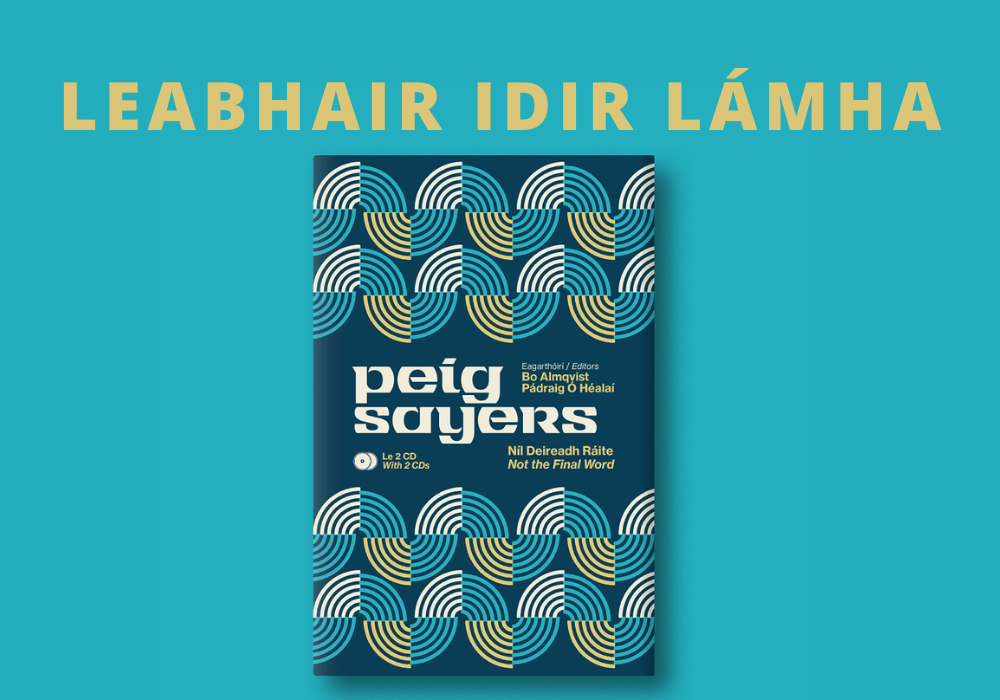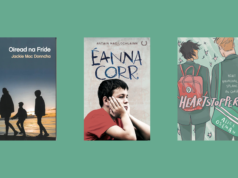
Peig Sayers: Níl Deireadh Ráite/Not the Final Word.
Bo Almqvist and Pádraig Ó Héalaí (eds) | New Island Books | hb €24.95 w/2 audio CDs | 340pp | 9781848407671.
For some people, encountering the book Peig at school became the embodiment of an unproductive engagement with the Irish language, while for others, her autobiography was a unique account of an ordinary woman’s life (1837–1958). It tells of her struggle with poverty and life on the Atlantic coast, mostly on the Great Blasket Island and on the mainland.
Scholars from Ireland, Britain and mainland Europe made their way to the island in the early twentieth century to learn Irish and collect folklore. Their interest in that community and its oral literature led to a number of island autobiographies, the best known being Peig, The Islandman and Twenty Years A Growing, which all met with success and were translated into English and other languages. A visit to Dingle’s Café Liteartha reveals versions in a range of European languages.
Peig Sayers became a focal point for many of the visiting scholars for a number of reasons: she was a noted conversationalist and an exceptional storyteller with clear diction and a willingness to share her wealth of traditional tales. The book that became a set school text gives little idea of her importance as a traditional storyteller, although her autobiographical writings do provide valuable context and background.
A number of these international scholars published stories they had written down from her oral performances, and the Irish Folklore Commission recognised her importance and collected from her intensively. Unfortunately, technological constraints on sound recording until the mid-twentieth century means that most of her vast repertoire was written down with no permanent audio record.
Fortunately, in the early 1950s it became possible to make field recordings and some of those form the basis for this volume. It’s worth bearing in mind that they were made in St Anne’s Hospital, Dublin, in 1952 where the 79-year-old Peig was recovering from illness—the remastered recordings are remarkably clear and show how chatty and obliging she remained despite illness and poor sight. In the book, the interviews are transcribed in Irish and translated to English with an excellent introduction by the editors to explain the importance of the storyteller and her stories. There are examples of international folktales and migratory legends, stories of Fionn Mac Cumhail and the Fianna, tales of the supernatural, prayers, historical lore and recollections of local customs and life.
This and a previous book of Peig Sayers’s stories is due to the work of two leading folklorists, Bo Almqvist and Pádraig Ó Héalaí. Unfortunately, Bo Almqvist’s untimely death did not allow him to see this volume published but his co-editor Pádraig Ó Héalaí finished their labour of love. Peig Sayers: Níl Deireadh Ráite/Not the Final Word, draws on recordings in the National Folklore Collection in UCD, which holds the work of the Irish Folklore Commission and includes thousands of pages of Peig’s lore and stories, the bulk of them collected and transcribed by Seosamh Ó Dalaigh of Dún Chaoin.
I think most readers will enjoy listening to the remastered audio CDs, perhaps keeping an eye on the transcriptions to best appreciate the warm voice and enthusiastic retelling of traditional tales that the storyteller makes her own.
In 2009, stories that had been collected by RTE and the BBC were also transcribed and translated by Bo Almqvist and Pádraig Ó Héalaí and published with audio recordings as Labharfad le Cách/I Will Speak To You All.
These books help us better appreciate the wealth of our oral tradition and the narrative skills of tradition-bearers like Peig Sayers. It is indeed a rare privilege to sit by the fire on a winter’s evening and listen to the voice of a fabled seanchaí bring old stories alive.
***
Cathal Póirtéir is a writer and broadcaster who has published several books and CDs on Irish folklore, social history and literature in Irish.











